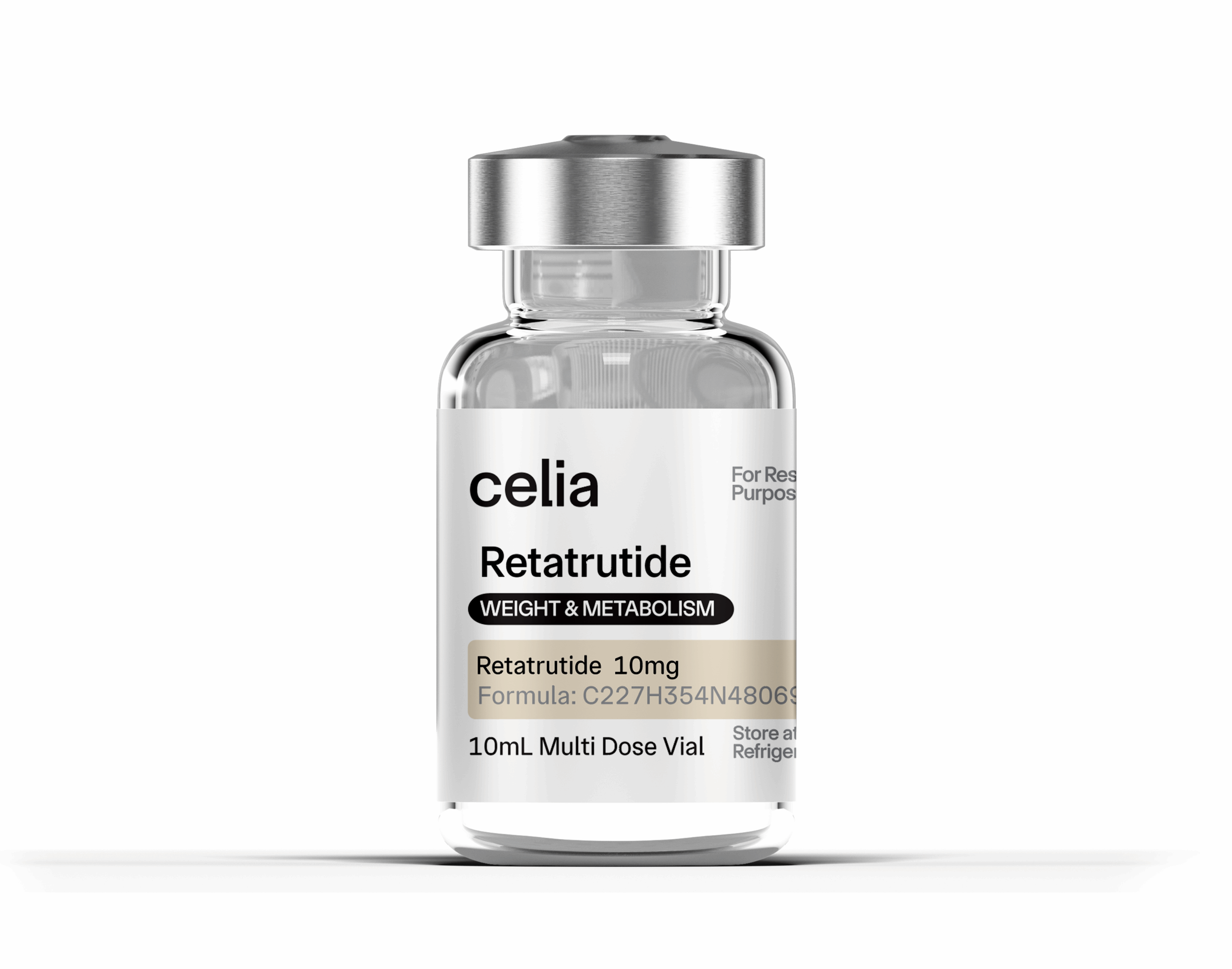Retatrutide 10mg 10mL Vial
$395.00
|
$355.50
with Automatic Refills
Retatrutide (formerly M25) is an investigational peptide being studied for its potential in supporting weight management and metabolic health. It acts on GLP-1, GIP, and glucagon receptors to influence appetite, energy regulation, and fat metabolism.
MOA
- Multireceptor Incretin Agonism:
- Retatrutide is a novel multireceptor agonist that activates both glucagon-like peptide-1 (GLP-1) and glucose-dependent insulinotropic polypeptide (GIP) receptors. Through this dual incretin engagement, Retatrutide modulates key metabolic pathways that regulate appetite, energy expenditure, and glucose homeostasis.
- Appetite Suppression and Satiety Signaling:
- By stimulating GLP-1 and GIP receptors within the hypothalamus, Retatrutide enhances central satiety signaling and reduces hunger. This neural effect leads to decreased caloric intake and supports sustainable weight reduction.
- Glycemic Control and Insulin Regulation:
- Retatrutide improves glucose metabolism by stimulating glucose-dependent insulin secretion and suppressing glucagon release. Additionally, it delays gastric emptying, leading to smoother postprandial glucose control and improved glycemic stability.
- Insulin Sensitivity and Glucose Uptake:
- Dual activation of GLP-1 and GIP receptors enhances peripheral insulin sensitivity and promotes glucose uptake in skeletal muscle and adipose tissue. These combined actions improve metabolic flexibility and reduce insulin resistance.
- Hepatic and Lipid Metabolism:
- Emerging data indicate that Retatrutide reduces hepatic lipid accumulation, potentially improving non-alcoholic fatty liver disease (NAFLD) outcomes. This hepatoprotective action contributes to overall metabolic and cardiovascular health.
- Energy Expenditure and Metabolic Balance:
- Beyond appetite and glucose regulation, Retatrutide influences energy expenditure through incretin-mediated pathways that optimize fat utilization and maintain long-term metabolic homeostasis.
More Information
- Disclaimer: For Research Purposes Only – All products on this site are for Research and Development use only. The statements made within this website have not been evaluated by the US Food and Drug Administration. The statements and the products of this company are not intended to diagnose, treat, cure or prevent any disease. Celia Health is a supplier of research-use chemicals manufactured in a CGMP facility in the US. Celia Health is not a compounding pharmacy or chemical compounding facility as defined under 503A of the Federal Food, Drug, and Cosmetic act.
This product requires a good faith medical-screening. After purchasing, you will receive instructions to schedule and complete your intake screening before your order can be fulfilled. Each intake is valid for one calendar year.

